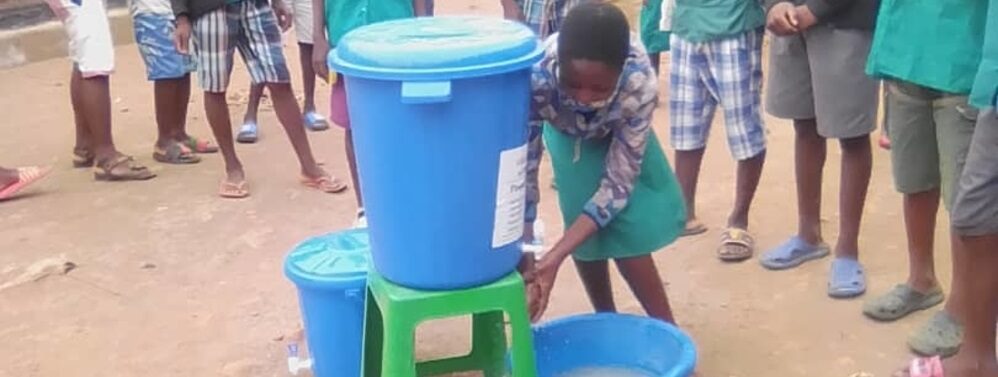By Katie Miekle
For many of us, we have grown accustomed now to the importance of hand hygiene. You cannot step foot into a shop or supermarket without seeing hand-sanitiser stands to use, many of us now carry our own sanitiser or wipes with us wherever we go and we regularly hear instructions from governments to wash our hands with soap and water to the tune of ‘Happy Birthday’. All this is based upon the knowledge that one of the most effective ways to prevent the spread of Covid-19 is one of the most simple – basic handwashing.
With schools now reopening all over the world, the need for improved WASH facilities has never been greater. Regularly washing your hands with soap and water is a simple way to prevent the contamination and spread of not only Covid-19, but many other infectious diseases. However, the reality is that this is not an option for the vast number of school children around the world. The latest data from the World Health Organisation (WHO) and UNICEF reveals that in 2019, 43% of schools around the world lacked soap and water. This means that around 818 million children lack even the most basic of handwashing facilities whilst at school.
Sub-Saharan Africa is one of the most effected by poor hygiene facilities, and Malawi is unfortunately no exception. In a study by UNICEF it was discovered that only 19% of schools in Malawi had access to handwashing facilities, the majority of which were without soap (2011: 29). This has a direct impact, not only on children’s health but on education as a whole, social development and gender equality. Girl’s are often worse affected with many being forced to stay at home during their menstrual period due to the lack of adequate sanitation facilities at schools.
Now, more than ever, with the outbreak of Covid-19, the safe re-opening of schools’ hinges upon the provision of functioning hygiene facilities for pupils of all ages.
What have Classrooms for Malawi being doing?
Following the outbreak of Covid-19, Classrooms for Malawi immediately launched a campaign to raise funds in order to provide handwashing facilities for around 30,000 children in partnership schools across Malawi. The campaign has been an immense success with over £8000 being raised. This money has been used to buy and distribute 300 handwashing units and 4000 bars of soap. These have been distributed and installed in schools all over the country ensuring that around 34,000 children have access to handwashing facilities.
CfM have not only provided handwashing facilities but have also provided educational resources aiming to improve knowledge and awareness of the importance of handwashing to prevent Covid-19. This is a key step in ensuring that children are engaged and aware of how the spread of Covid-19, and other diseases can be prevented.
Campaigns like this are hugely important. Now, more than ever it is crucial to address the importance of hygiene facilities in schools in order to ensure that children can continue to learn in a safe, clean and secure environment.
Even in these difficult times, we are pushing forwards to ensure progress for our cause. If you’d like to support us as we work through the ongoing pandemic, find out how you can donate to us, or discover fundraising options online. You can also contact us directly for helpful resources related to our cause.
References
UNICEF, 2011. Equity Of Access To WASH In Schools A Comparative Study Of Policy And Service Delivery In Kyrgyzstan, Malawi, The Philippines,Timor-Leste, Uganda And Uzbekistan. [online] UNICEF, pp.26-39. Available at: https://www.unicef.org/wash/schools/files/Equity_of_Access_to_WASH_in_Schools(1).pdf [Accessed 13 November 2020].
WHO. 2020. 2 In 5 Schools Around The World Lacked Basic Handwashing Facilities Prior To COVID-19 Pandemic — UNICEF, WHO. [online] Available at: https://www.who.int/news/item/13-08-2020-2-in-5-schools-around-the-world-lacked-basic-handwashing-facilities-prior-to-covid-19-pandemic-unicef-who [Accessed 13 November 2020].


No comments yet.